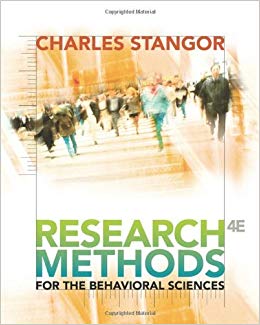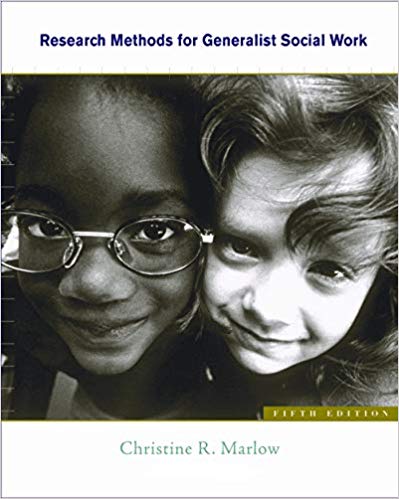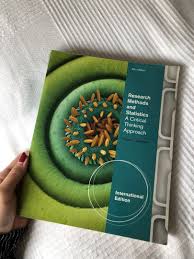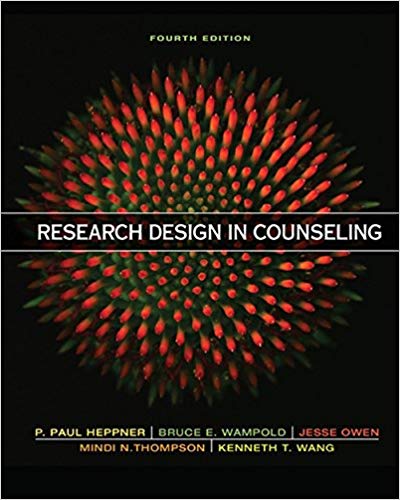Research Methods in Psychology Evaluating a World of Information 2nd Edition
CHAPTER 4: ETHICAL GUIDELINES FOR PSYCHOLOGY RESEARCH
MULTIPLE CHOICE
1. the Tuskegee Study aimed to examine which disease?
|
a. |
Syphilis |
c. |
Tuberculosis |
|
b. |
Cancer |
d. |
Smallpox |
ANS:ADIF:Easy
REF: Historical Examples: The Tuskegee Syphilis Study Illustrates Three Major Ethics Violations OBJ: Learning Objective 1 MSC: Remembering
2.Which of the following events did NOT occur in the Tuskegee Study?
|
a. |
Researchers told participants they were receiving treatment even though they were not. |
|
b. |
Participants in the study were given/infected with the disease. |
|
c. |
Participants were not told they had been infected with the disease. |
|
d. |
Researchers prevented participants from seeking treatment. |
ANS:BDIF: Difficult
REF: Historical Examples: The Tuskegee Syphilis Study Illustrates Three Major Ethics Violations OBJ: Learning Objective 1 MSC: Remembering
3. Which of the following ethical violations proposed by the Belmont Report was NOT committed in the Tuskegee Study?
|
a. |
Participants were harmed. |
|
b. |
Participants were not treated respectfully. |
|
c. |
Participants were not treated by actual doctors. |
|
d. |
Participants were from a disadvantaged social group. |
ANS:CDIF: Medium
REF: Historical Examples: The Tuskegee Syphilis Study Illustrates Three Major Ethics Violations: Three Kinds of Ethics Violations OBJ: Learning Objective 1
MSC: Remembering
4.In considering whether research is ethical, which of the following are balanced against each other?
|
a. |
Inconvenience to participants versus benefit to the researcher |
|
b. |
Time investment of the study versus complexity of the study |
|
c. |
Importance of the research versus the financial cost to conduct the study |
|
d. |
Risk to participants versus the value of the knowledge gained |
ANS:D DIF: Medium
REF: Historical Examples: The Milgram Obedience Studies Illustrate an Ethical Balance; Core Ethical Principles: The Belmont Report: Principles and Applications
OBJ: Learning Objective 3MSC: Remembering
5. Which of the following is NOT true of the Belmont Report?
|
a. |
It was written at the request of the U.S. Congress. |
|
b. |
It was created in 1976. |
|
c. |
It was written primarily in response to medical experiments performed in Nazi-occupied Europe. |
|
d. |
It yielded three guiding principles of ethical research. |
ANS:CDIF: Medium
REF: Core Ethical Principles: The Belmont Report: Principles and Applications
OBJ: Learning Objective 1MSC: Understanding
RESEARCH STUDY 4.1
Dr. Kline is planning on conducting a study next semester. He is curious as to whether sleep deprivation is associated with poorer cognitive performance. For example, if you sleep poorly the night before a big exam, will you do worse? Dr. Kline is especially curious about selective sleep deprivation, where people are kept from entering REM (rapid eye movement) sleep. Using an electroencephalograph (EEG) to monitor brain waves, he plans to let participants sleep until they enter REM sleep and then he will wake them. After the participants are awake for one minute, Dr. Kline plans to let them return to sleep. As they enter REM sleep again, he will wake them again and follow the same procedure. He plans to do this through the entire eight-hour sleep session. The following morning, participants will be asked to take a sample SAT test.
Refer to Research Study 4.1 to answer the following thirteen questions.
6. Dr. Kline asks his participants to provide informed consent. Doing this is adhering to which principle of the Belmont Report?
|
a. |
The principle of beneficence |
c. |
The principle of integrity |
|
b. |
The principle of justice |
d. |
The principle of respect for persons |
ANS:DDIF: Medium
REF: Core Ethical Principles: The Belmont Report: Principles and Applications: The Principle of Respect for PersonsOBJ: Learning Objective 2
MSC: Applying
7. Imagine that Dr. Kline is a clinical psychologist who volunteers his time at a local prison counseling several inmates. Because of his connections there, he is considering using prisoners as his participants. Why is this choice potentially problematic?
|
a. |
According to the Belmont Report, prisoners are entitled to special protection. |
|
b. |
Prisoners do not make good participants since they may not tell the truth. |
|
c. |
Prisoners are unable to give informed consent. |
|
d. |
More prisoners may want to participate than Dr. Kline can study. |
ANS:ADIF: Medium
REF: Core Ethical Principles: The Belmont Report: Principles and Applications
OBJ: Learning Objective 1 MSC: Applying













Reviews
There are no reviews yet.